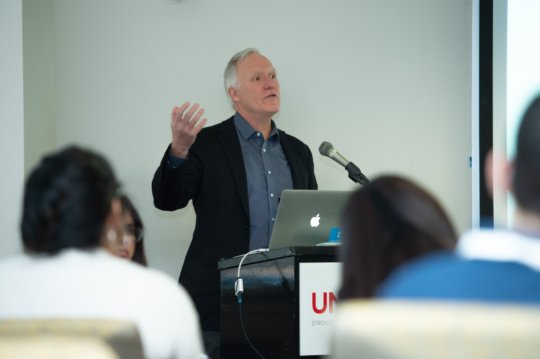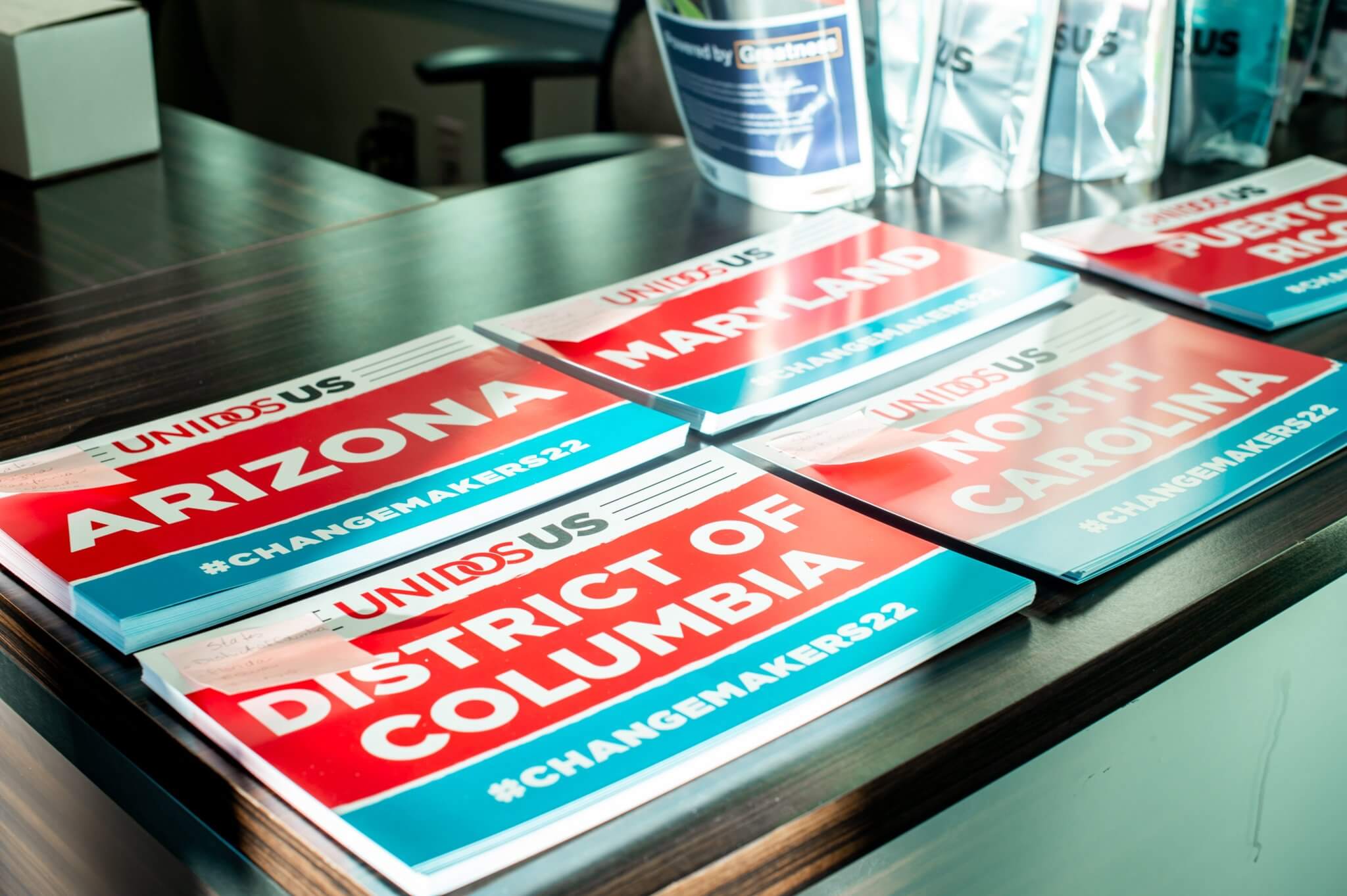The stories we tell
By Stephanie Presch, Content Specialist, UnidosUS
“The art of communication is in the stories that we tell,” said Doug Hattaway, founder and CEO of Hattaway Communications during a packed session on storytelling at the 2022 UnidosUS Changemakers Summit.
The Summit is a two-day advocacy training where veteran and aspiring advocates from the UnidosUS Affiliate Network receive policy briefings on issues important to Latinos as well as training on how to engage with their elected representatives on Capitol Hill. The UnidosUS Capital Awards also takes place during the Summit, an opportunity to recognize those leaders who have worked hard to advance the well-being of the Latino community.
Hattaway Communications has worked closely with UnidosUS to develop a narrative framework about Latino contributions to American society, and in this session, they brought their research directly to advocates and engaged them in a conversation about the narratives that they’ve heard about Latinos in their communities.

“When you do it right, they won’t change it [their opinion] back after they hear from the other guy,” Hattaway explained to attendees.
Hattaway noted that big ideas and emotional responses to a particular message matter even more than facts and figures when it comes to trying to convince people to support a particular cause.
“Surprise is one of those emotional reactions that focuses people’s attention,” Hattaway advised attendees, noting that Hattaway Communications had found that people polled by the firm were surprised to learn that nine out of 10 people who receive benefits from the government work or are elderly or living with a disability. Afterward, 70% of taxpayers that Hattaway spoke to for their research agreed that the government should fund these benefit programs.
Some of the narratives that attendees have heard in their community included that Latinos are uneducated, voting while undocumented, and taking someone else’s job.
“There’s this big narrative that immigrants take things—they might take our jobs, they might take our tax money… taking things that other people deserve. In social science this is called a zero-sum mindset, moving ahead at someone else’s expense,” Hattaway explained.
One example that Hattaway gave to the group was that of the fight to get same-sex marriage legalized. He noted that facts around civil unions were not particularly persuasive, and that in the 1990s, support for same-sex marriage hovered around 27%.
Hattaway Communications worked with the Human Rights Campaign to change the narrative around same-sex marriage, shifting the conversation from legalities around civil unions to a story about couples wanting to honor their shared love and commitment to each other.
“You have to speak to the heart and the head,” Hattaway explained, detailing how the campaign they created focused on real stories of real couples. “This was about admiration—this is what I’d like in my relationship.”
Hattaway advised the audience to tell people a lesson, and then tell people a story, helping them to remember the point they should take away. He gave the example of an ad that the firm created that said “Love and Commitment Deserve Protection” above the story of a lesbian couple who wanted to get married to show their love and commitment to each other.
It’s important to think of this example in the context of trying to create long-term, systemic change.
“We need to get people thinking that helping one group helps them long-term,” said Carlos Diaz Barriga, Director of Strategy at Hattaway Communications, who also participated in the presentation.
He explained that Hattaway Communications developed three different frames to talk about the story of the Latino community in the United States.
“You can apply messaging about Latinos being contributors, recognizing the realities of Latino lives, and how removing barriers benefits all to produce more tailored messaging about specific issue areas,” Diaz Barriga noted. He encouraged attendees to craft messaging that talks about specific barriers that Latinos encounter in their communities, for example.
The importance of telling an accurate story about Latinos was also referenced repeatedly during Capital Awards. Both Representative Ritchie Torres, the night’s keynote speaker, and Senator Catherine Cortez Masto, one of the Capital Award honorees this year, were historic firsts as the first openly gay Latino in Congress and as the first female from Nevada and first Latina senator.
Representative Ruben Gallego, the other recipient of the night’s Capital Award, also referenced the extraordinary resilience of the Latino community and the contributions made to our country during his acceptance speech and the role that UnidosUS has played as an organization.
“The story of UnidosUS is the story of so many Latinos in our country, refusing to sit on the sidelines, not accepting just what was handed to us…. Millions of Latinos continue to work hard to make this country exceptional,” he said.
And in her address to attendees, UnidosUS President and CEO Janet Murguía referenced the fact that previous UnidosUS President and CEO Raul Yzaguirre first took the idea of a Latino museum on the National Mall to Capitol Hill 28 years ago.
Friends of the American Latino Museum was also among the evening’s honorees, being awarded the Capital Award for Public Service. In December 2020, a bill authorizing the National Museum of the American Latino was signed into law, and the organization—along with allies like UnidosUS—are continuing to work hard to ensure that Latino children will have the opportunity to see themselves reflected as part of the American story depicted on the National Mall.
“We’re not going to stop until we make sure that all of our stories are presented,” Estuardo Rodriguez and Raul “Danny” Vargas said in their acceptance speech.

